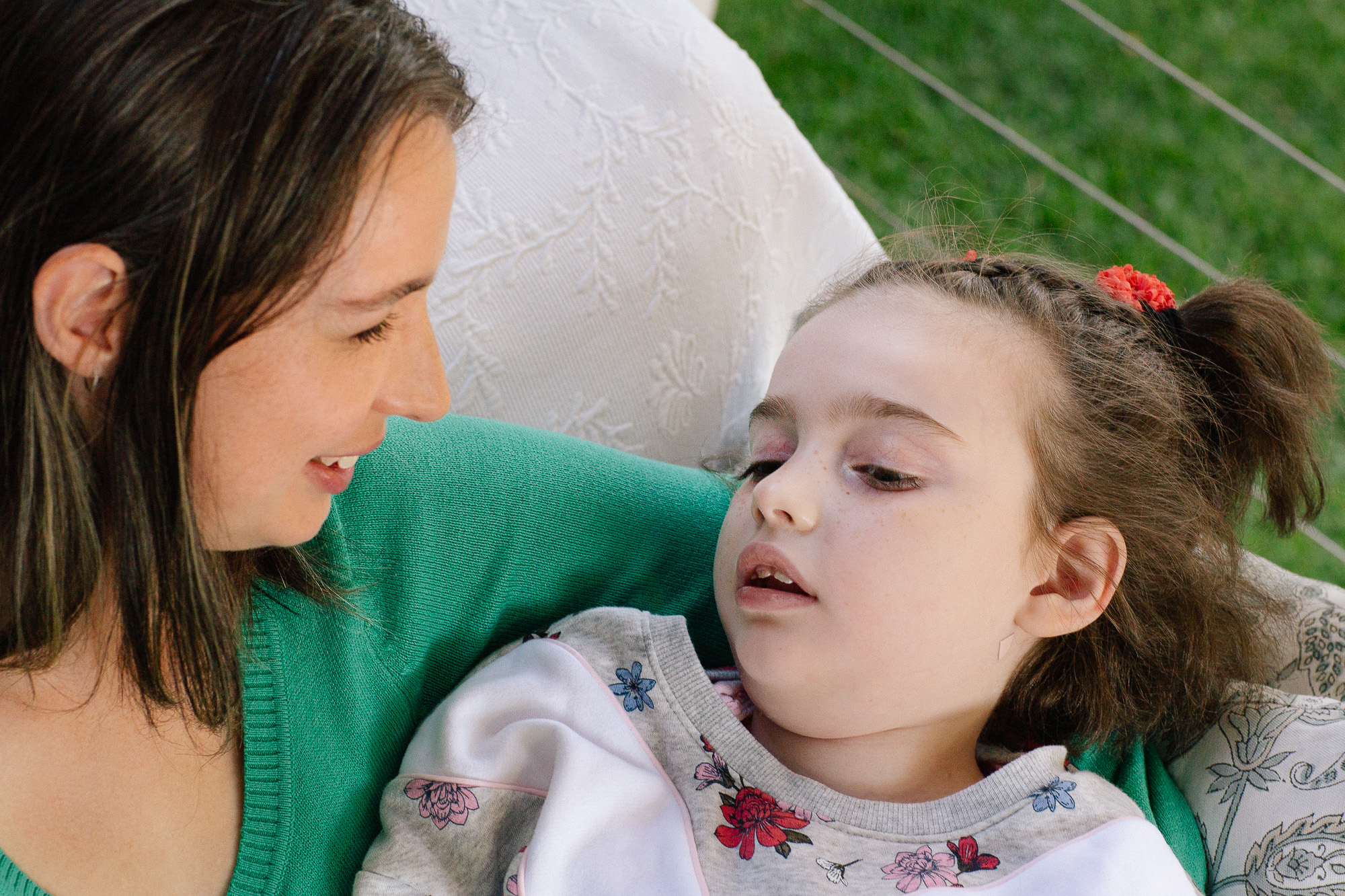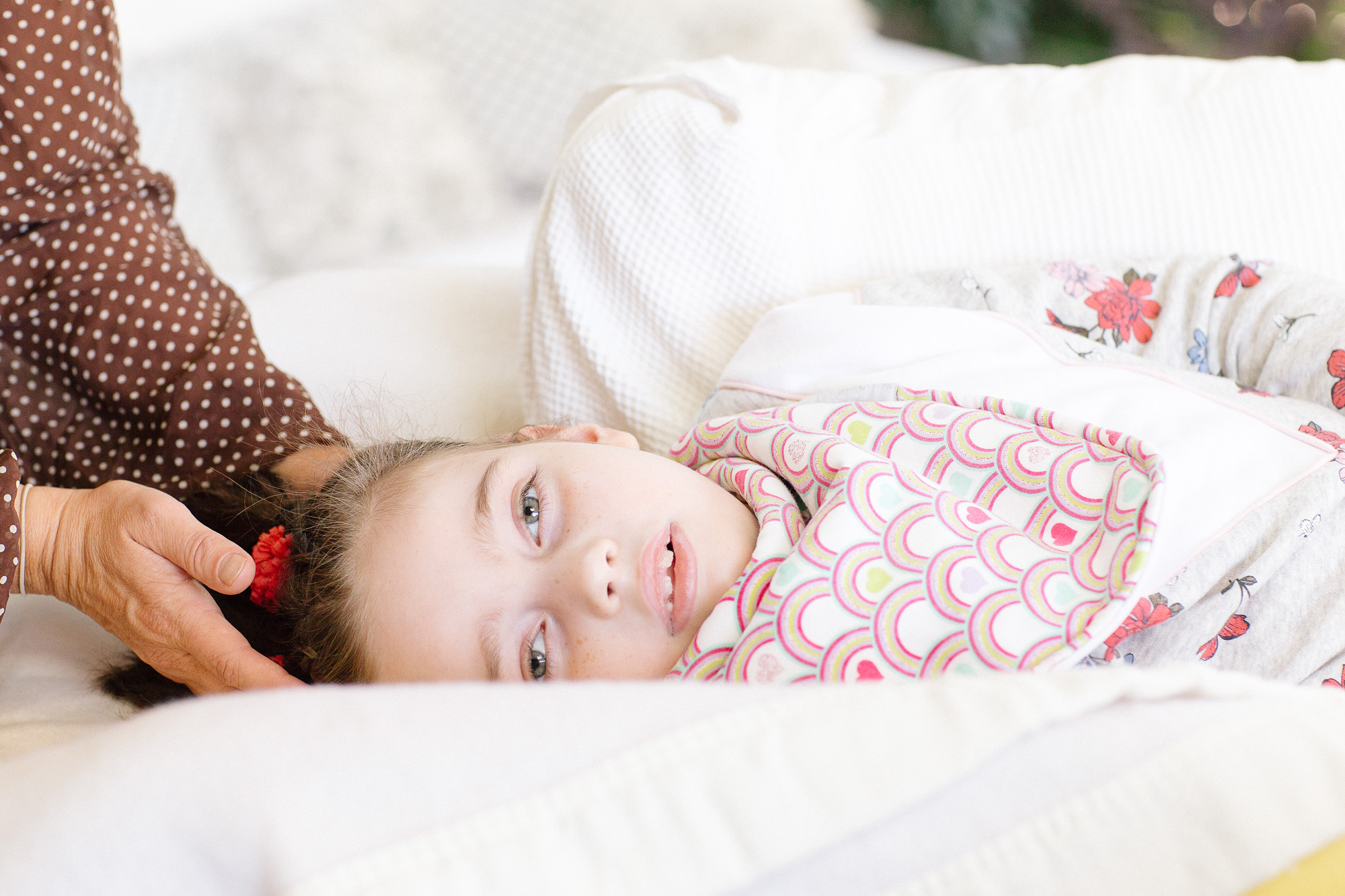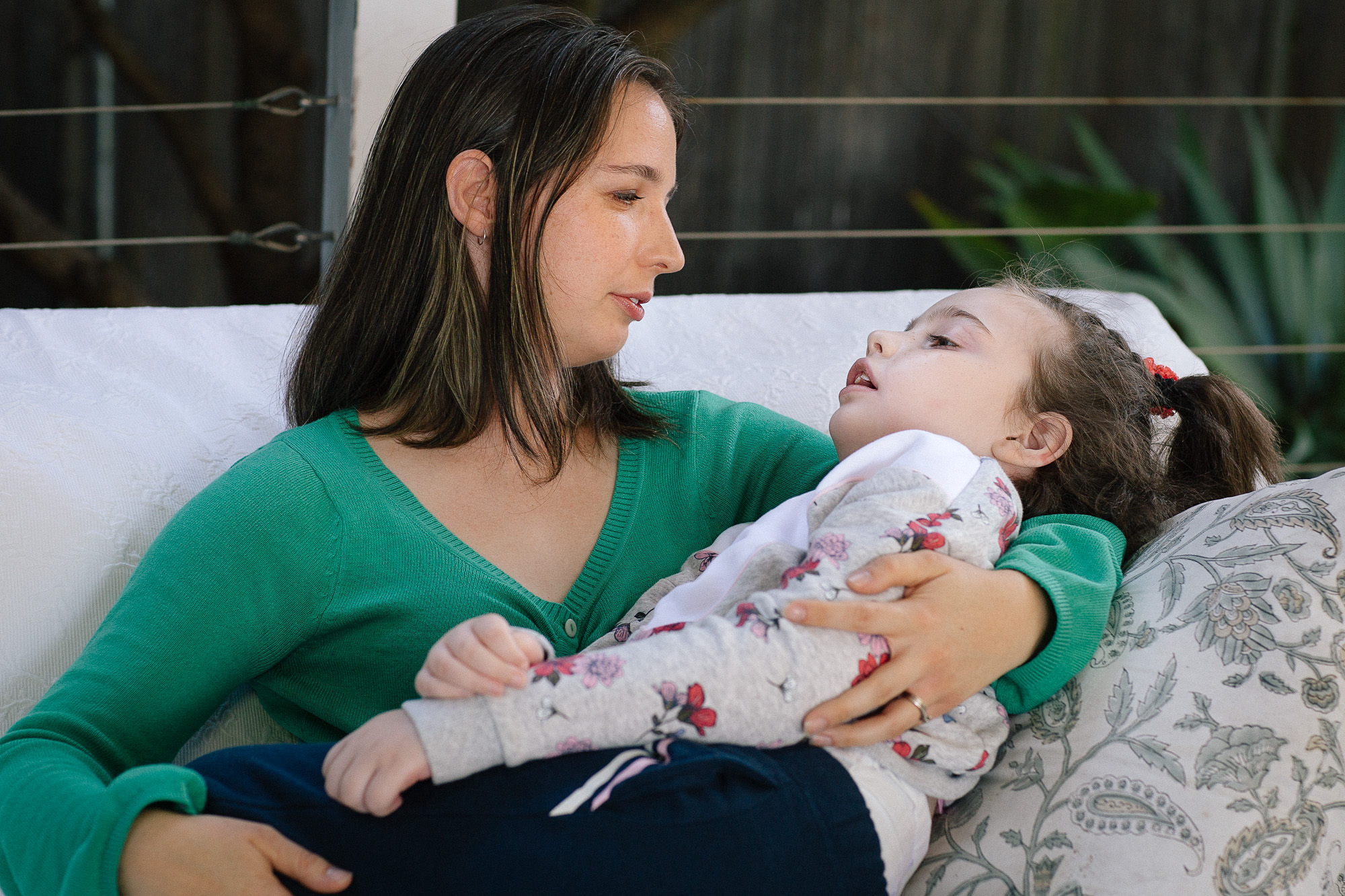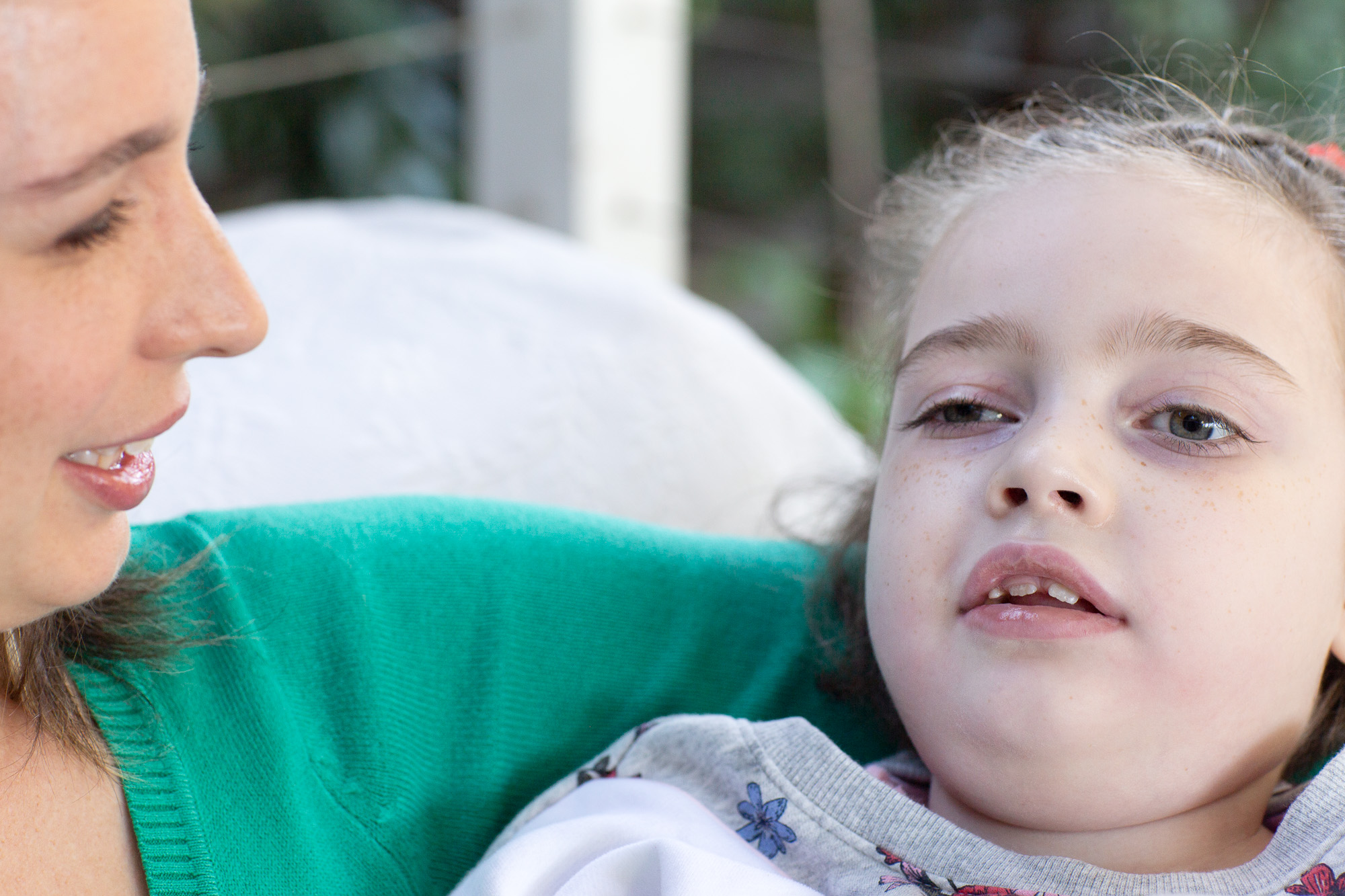Tell us about Matilda.
She was born healthy, with a good weight, a gorgeous baby. She never cried for no reason, only when something was wrong and once you fixed it she was happy. She was just a delight. She grew up into a toddler who was quiet and adored her older half-sister Indikah. She loved pretty shoes, beading, reading and was always wanting to help me with the washing and dishes.
Can you tell us a bit about her path to diagnosis?
When she was two-or-so her language development kind of plateaued. She had her first febrile convulsion at two-and-a-half (a seizure with a temperature). Then she had a second one, which was also pretty much dismissed and then, a month before her third birthday, she had the first seizure with no temperature. That’s called an afebrile seizure. They diagnosed her with epilepsy and put her on medication, but it had many horrible side-effects.
The paediatrician wanted to just change the dose but not actually change the medication. I was very unhappy and getting suspicious that it was more than just epilepsy. I felt ‘written off’. So, I went back to the GP saying I wanted a second opinion from a neurologist.
The neurologist recommended genetic testing and an ophthalmologist found she had a bull’s eye maculopathy. What then?
We googled it and noticed one particular cause called Battens disease. I had no idea what it was, but Matilda had every symptom the list, even ones that you wouldn’t have thought to tell your doctor. Like, grinding teeth. Grinding teeth is not a symptom that I thought was significant – my sister would grind her teeth as a teenager, and she was fine – but this was on the list and Matilda did it.
How old was Matilda when you finally got the diagnosis?
She was nearly four. I remember it like it was yesterday. It was the Friday of the June long weekend in 2015. Her sister, Rose, was two months old. The whole diagnosis period was obviously a very stressful and crazy time. Once we found out Matilda did have CLN2 and it was genetic, it was another anxious wait to find out whether Rose had it too. It turns out she is a carrier, so she isn’t affected but she will have to consider that when she is older and can have children of her own. We are glad we don’t have to worry about Rose going down the same journey as Matilda.
How did you feel after receiving Matilda’s diagnosis?
It was devastating. I remember during the whole long weekend we were walking around like zombies. My husband would look at Matilda almost as if he was looking through her, like you would see a ghost.
Did that feeling change?
I remember later in that year, we went to look for wheelchairs for the first time… standing frames and walkers as well because she was still walking. It was really confronting thing to do because you can’t imagine your child needing those things even though you know the prognosis. But actually doing it, seeing her in the equipment, seeing how it was already supporting her, it was both comforting and confronting at the same time. For example, she struggled in the walker but as soon as she was in the standing frame she was happy, because it was supporting her body, she was able to just focus on play – she really loves standing, even now. It was the beginning of accepting her new ‘normal.’
What else does Matilda love doing?
When she was first diagnosed her favourite cartoon was Charlie and Lola and we would watch it hundreds of times. She still loves listening to it. I think she likes the kids’ voices and being surrounded by happiness. And she really loves school, they stimulate her with activities that I don’t have time (or energy) to do at home. She enjoys sensory & tactile things as well. She can’t voluntarily move her body anymore so she likes it when we help her move and touch things.
What gives you strength?
Probably my love for Matilda and the fact that I’m the only one that will do it. I think my best outlet and support is the community group on Facebook, the Battens international Facebook group. It’s helpful to vent or ask questions to people who get it.
What does a good friend do to help a family like yours?
I have a wonderful friend and the way I describe friendship with her is that she likes to ‘do life’ with me. She’ll come over and she doesn’t mind doing something while we’re talking.
What advice would you have for families embarking on the sort of journey you are going through?
As your child changes, take the supports that are there – even if it feels confronting – from other Battens families as well as health professionals. Matilda’s been linked into paediatric palliative care team for three-and-a-half years now and they’ve helped with everything along the way. It’s about living the best life not just about end of life.
What do you wish and hope for about Battens?
Well, I hope for a cure. I really hope no other family has to go through what I have. It’s horrible and it just consumes your life. You’re put in places and have to make decisions about things that you thought you never would. I think it puts a lot of strain on families, on marriages, on extended families and it does not just take away your child, it can take away so much more than that – that’s what makes me really sad.
How do you juggle everything and keep it all happening?
You just try hard! You write lists, you just do the best you can and you accept any the help that you can have. You have to let go of some things. It changes your priority list.
How have your priorities changed?
Planning for the future looks differently and not taking any moment for granted. So, I’ve found I don’t waste as much time as I used to. I used to think I was busy but not compared to now!
 />
/>


